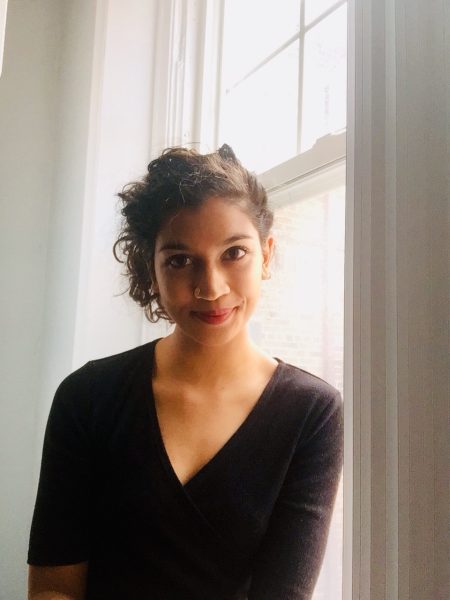You work as a refugee settlement worker while pursuing a master’s degree in Immigration and Settlement Studies and your writing explores themes of migration, borders and exile. Can you talk about how your work/studies and your writing overlap and inform each other?
I’ve always been moved to write around themes of migration and exile – these are the stories that live in my family, in my body. It feels important for me to write about these histories and realities, but I also can’t let writing be the only way I engage with them: it feels necessary for me to move towards justice both in my writing and my work. Studying and working in immigration/settlement has given me a structural and practical understanding of some of the issues I’m writing about, and writing gives me a way to process and grapple with the emotional and political field that I work in. I’m always learning from both, and engaging with one helps me do better with the other. Writing is always political: my writing exists within the structures of the world and the direction of history. Which story I choose to tell and not tell is a political gesture. And when it’s clear to me that the systems in power are very much in conflict with how I see the world, then my writing becomes deeply political – it becomes a tool for resistance and change.
Where do you write? Do you prefer the solitude of an empty home or the buzz of a coffee shop?
I do my best writing in the mornings, so that’s usually in the quiet of my apartment before starting my day. I find water sounds put me in a writing headspace – rain, the kettle boiling, someone in the shower. If I’m going to write in public, there has to be a particular kind of noise – no loud music, no-one chatting nearby, just the rhythm of people going about their day.
This summer you attended the Tin House Summer Workshop. What is one thing you learned during the workshop (either about your own writing or writing in general) that you can share with our readers?
There’s so much I could say here. Something we discussed in my novel workshop was the importance of questions: rather than writing into plot, we talked about writing towards a question at the heart of the work. The vision of the work, then, is a constellation of questions, and each character, scene, and chapter is grappling with those questions, moving closer to answers. My workshop leader, Ingrid Rojas Contreras, gave us an exercise where we mapped out the essential question at the root of our work. The exercise was transformative in that it made me articulate, in a very distilled way, exactly why I have to write this novel. Since then, I’ve been thinking about these questions: who am I fighting for on the page? What language do I need to do that justice?
What kind of story would you love to see in the queue this week?
Stories where the world is bigger than the writer. Stories doing something precise and gorgeous at the sentence level. Stories that make me pause, look away, and come back.


 The core workshop of SmokeLong Fitness is all in writing, so you can take part from anywhere at anytime. We are excited about creating a supportive, consistent and structured environment for flash writers to work on their craft in a community. We are thrilled and proud to say that our workshop participants have won, placed, or been listed in every major flash competition. Community works.
The core workshop of SmokeLong Fitness is all in writing, so you can take part from anywhere at anytime. We are excited about creating a supportive, consistent and structured environment for flash writers to work on their craft in a community. We are thrilled and proud to say that our workshop participants have won, placed, or been listed in every major flash competition. Community works.